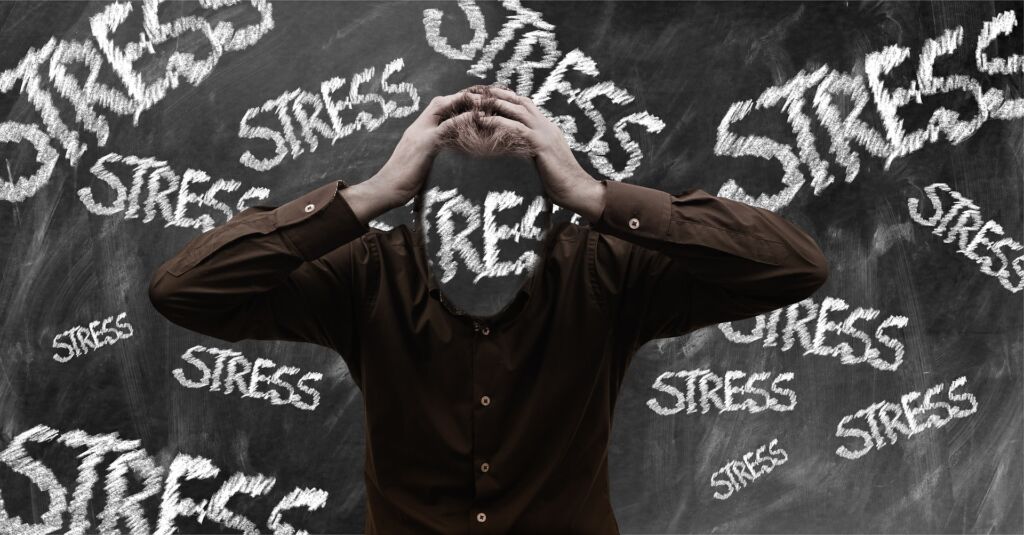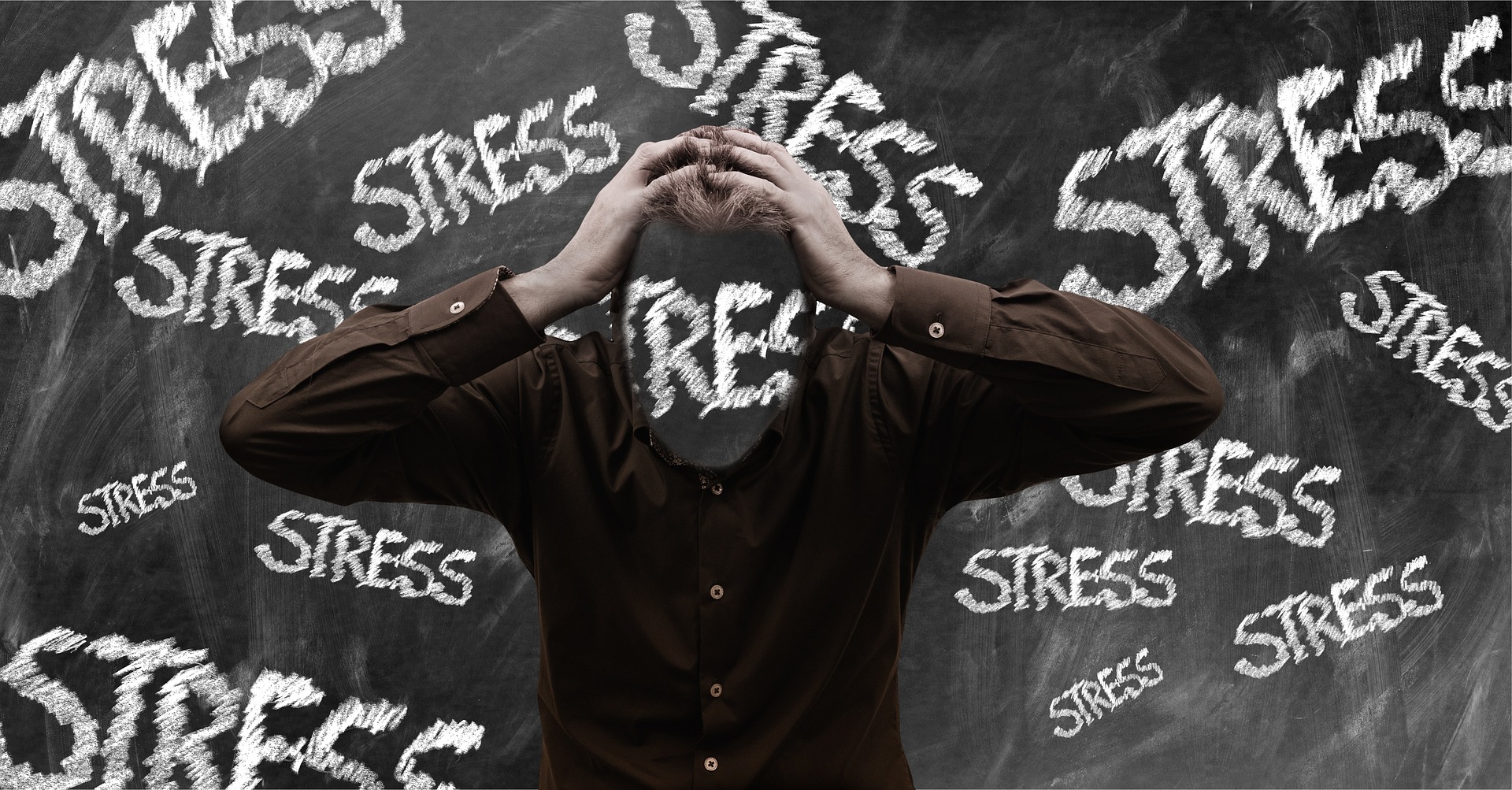
Most everyone understands a couple of things about stress: (1) Everyone experiences stress, and (2) stress is not healthy. Stress is simply a part of life for most people, and that’s why to some the concept of stress awareness may seem a bit counterintuitive. However, April is National Stress Awareness Month, and this is a good time for people to deepen their understanding of stress and the harm it can cause.
SoCal Empowered is a team of Orange County mental health professionals. One thing that’s extremely common with the people we work with is that they are undergoing, or have undergone, periods of stress. As such, in furtherance of National Stress Awareness Month, we’re presenting an overview of this powerful force. We hope that the information will help people engage in their own process of stress awareness so that its effects are minimized.
Stress Awareness: How It Manifests
According to the World Health Organization, or WHO, stress is defined as:
[A] state of worry or mental tension caused by a difficult situation. Stress is a natural human response that prompts us to address challenges and threats in our lives.
There are different ways in which the knowledge of stress awareness can help us. The first involve recognition. Stress has a way of manifesting itself both externally and internally.
External signs of stress include:
- Cold sweats
- Sleeping problems
- Dizziness
- Grinding of teeth
- Fidgeting
- Increased heartrate
- Muscle tension
Internal signs of stress include:
- Mood swings
- Irritability
- Irrational thoughts
- A drop in energy
- A change in appetite
- Temporary cognitive decline
- Blurred vision
Clearly, these are not exhaustive lists of external and internal manifestations of stress, but they are common examples. Understanding stress awareness means understanding that stress does come with symptoms, as at its foundation it is a response to a difficult situation.
Three Different Types of Stress
Depending on how you categorize stress, there are between three and five different types. Those who are in the camp of five different types tend to include positive types of stress, which do exist. For the purposes of stress awareness and the minimization of harm, we’re going to lay out the three types of stress as published by Psychology Today. These include:
Acute Stress
Acute stress is deemed as such largely because of its relatively short duration. As the term suggests, acute stress involves situations that involve intense reactions to difficult circumstances. For example, if you’ve ever started a new job, encountered a surprise that wasn’t pleasant or narrowly avoided an auto accident, you’ve lived through acute stress.
Episodic Acute Stress
Acute stress tends to deal with situations that don’t arise with much regularity. Episodic acute stress describes circumstances where acute stress occurs on at least a somewhat regular basis. There isn’t necessarily one situation that leads to these episodes. Instead, people who suffer from episodic acute stress generally feel as though they’ve taken on too much and they are overwhelmed.
Chronic Stress
Chronic stress is the most unrelenting form of stress in that it exists inside of a person on an almost nonstop basis. People who have endured extremely traumatic or difficult childhoods have lived through this difficult experience. The same holds true for those who live in war-torn countries or in poverty. Chronic stress wears a person down over time. Unfortunately, when someone hits this stage, he or she may stop doing what’s possible to alleviate the stress.
Potential Effects of Stress
As we mentioned above, it doesn’t take National Stress Awareness Month to understand that stress is not healthy. We all understand this, but what some people may not be aware of is the specific types of harm that stress can inflict on a person and his or her family. As we also previously mentioned, stress awareness should involve the understanding that stress can cause both physical and mental harm.
According to Web MD, the following are just a few examples of the types of physical harm that stress can inflict over time:
- Heart disease
- High blood pressure
- Heart attacks
- Strokes
- Acne
- Psoriasis
- Ulcerative colitis
In addition, stress can lead to the development of the following mental health problems, among others:
- Depression
- Anxiety
- Personality disorders
- Post-traumatic stress disorder (PTSD)
These effects are serious in nature, and are just a few reasons as to why stress awareness is so important overall.
Ideas for Coping with Stress
Perhaps the most important component of any stress awareness effort is recognition. While everyone experiences stress from time to time, when someone begins to suffer the signs or effects of stress mentioned above, it’s most likely time to engage in some coping exercises. Examples of approaches that have worked for others include:
- Exercise – Get your synapses firing with some type of physical activity to balance your brain’s chemistry.
- Diet – It’s always important to eat well, but studies have shown that good nutrition can help to counteract the rise and perpetuation of stress.
- Quiet time – It’s easy to feel overwhelmed, so if at all possible, fight back against stress by “unplugging” from things like social media, etc., and go for a quiet walk or read a nice book.
- Nature – If it’s been awhile since you have stopped and listened to birds singing or watched a body of water move past you, you may find that doing so helps calm the mind.
- Sleep – While easier said than done, sleeping well will help your entire body rest and give it a better chance in its battle against stress.
- Breathing – There are numerous breathing exercises that are specifically designed to lower your heart rate and slow your mind when you are stressed.
- Support – Finally, don’t be afraid to lean on your support network if you’re feeling like it’s all too much. We all need that type of help from time to time.
Overall, coping with stress is something that you should do with the help of your doctor, a medical health professional, or both depending on your situation.
How SoCal Empowered Can Help
National Stress Awareness Month is important for countless reasons. Everyone who learns more about stress and recognizes it in time to do something about it will be better off. If you or a loved one is at the point where it’s time for a more involved level of intervention, then contact our team of Orange County mental health professionals for help. We will listen to your situation and help you get pointed in the right direction.




